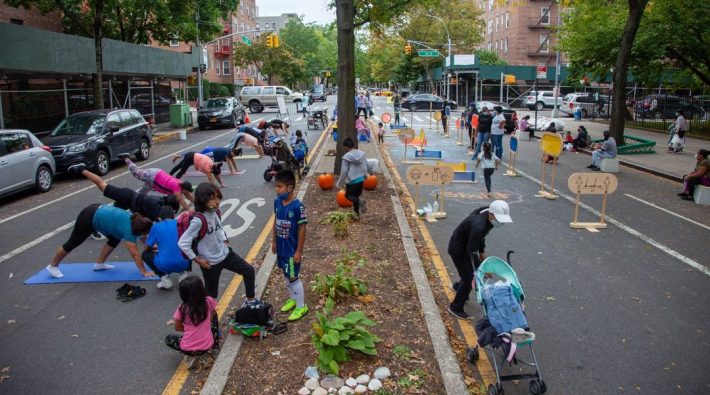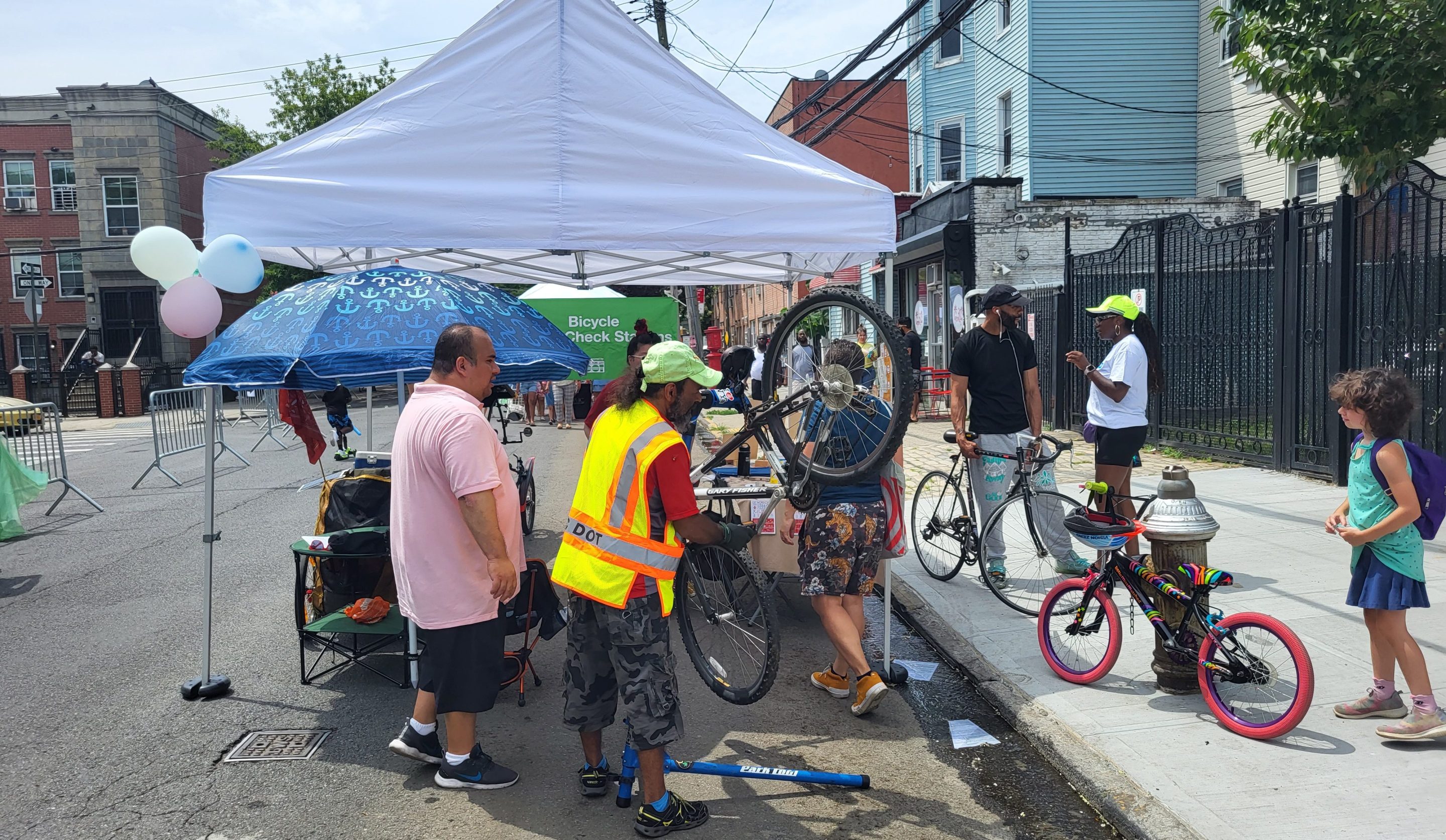Volunteer organizations that run six of the city's popular car-free open streets haven't been reimbursed by the city — and the cash-flow problems threaten to undermine a program that city leaders have proudly celebrated.
The Department of Transportation owes some of the open streets groups for all of their 2023 expenses, according to a letter the volunteer organizations sent to agency leaders last month [PDF] demanding that the city open the coffers.
“The lack of on-time reimbursement has had a chilling effect on the popular programming options that open streets groups have been able to facilitate during the 2023 season,” wrote the six open street groups along with three advocacy organizations in the Feb. 14 missive. "For volunteer organizations, having to post substantial money upfront for our operating expenses before being reimbursed by the city is unsustainable and limits what we can offer on the open street."
The organizations, largely run by residents who got together during the pandemic, have to fundraise or borrow money so they can pay in advance for programming and storage of equipment. The groups then invoice DOT for reimbursement.
The 34th Avenue open street in Jackson Heights, which DOT officials have lauded as the city's “gold standard,” is still waiting on $20,000 for last year’s expenses, including for items as mundane as hula hoops and orange vests as well as more expensive programming costs like instructors for Cumbia and soccer classes.

“We’re volunteers filling a void that the city’s not providing. How does that start in a neighborhood with very few resources?” said Jim Burke, a co-founder of 34th Avenue Open Streets Coalition. “You’re in a constant state of fundraising, I’d much rather be on the street programming than having to call people and ask for money.”
That’s even harder in low-income areas like the South Bronx, where open street organizers have cut programs due to the slow drip of city refunds.
“I had to start cutting back on some of the programming, so we had to go back to the basics,” Lonnie Hardy, director of the Caldwell Enrichment Program, which runs the one-block open street on Jennings Street in the Boogie Down.
Hardy said she got reimbursed for the first half of last year, but is still awaiting more than $10,000 for the latter half. She decided against hiring a puppet show for kids late last year because of the cost concerns.
“We didn’t even request them last year, because we had planned to do it toward the end of the year and we couldn’t afford it,” Hardy said.
The DOT suggested that the issue is not a lack of desire or funding to pay back the volunteer groups. But the federal pandemic relief money that initially floated the program was administered differently.
NYC DOT spokesperson Mona Bruno said the agency is working to improve the payment process to address delays and continue providing funding. Bruno cited unspecified internal processes that will be made more efficient in the future. The agency declined to be more specific.
"We are committed to continue providing further funding — and even expanding resources — to locations in need to help them thrive," Bruno added.
To that end, the agency said last year it would spend $30 million to dramatically expand funding for plaza and open streets maintenance, as well as to start new ones, but that money is for staffing and maintenance, not programming. And some open street volunteers are still struggling.
Additionally, the $30M is slated for barricade setup and maintenance, *not* the programming that activates these spaces (which is what costs the most money).
— John Surico (@JohnSurico) March 7, 2024
Again, just noting that these chunks of money shouldn't be conflated.
The volunteers behind the two-block 31st Avenue open street in Astoria, for example, have overdrafts on their bank accounts from costs like storing their tables and chairs, and it's hard to book programming from DOT's pre-approved list of vendors if they don't know whether they can pay them on time.
“We have enough to cover March, but we don’t have enough to cover April,” said Lola Telo, a treasurer with the 31st Avenue Open Street Collective, one of the groups which signed the letter.
DOT has worked to turn some open streets into permanent redesigns that rely less on volunteer labor, but the agency should also make it easier for existing efforts to survive — by paying its partners back quickly or even providing funding in advance, Telo said.
“They’re pretty proud of the program, they like talking about it, but they’re not really helping us make it easy to manage and operate,” the Astoria resident said.






